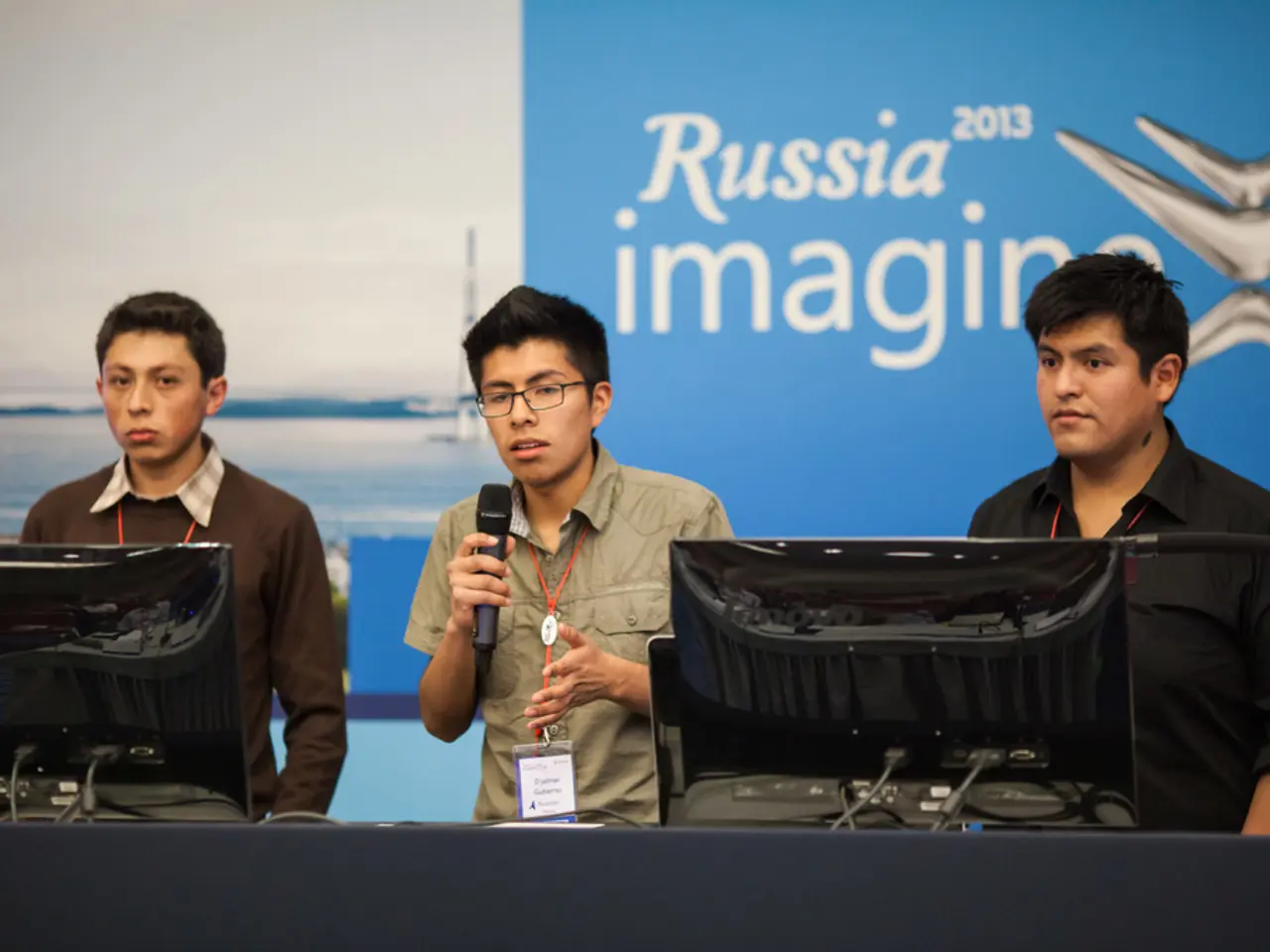Scorecard Pope: Is a Big Buck Bishop from Bavaria the Next Holy Father?
Is financial strain within the Vatican potentially leading to the election of a Pope from Germany?
Hold onto your hats, Catholic folks, because we might just be rolling in a new era! The rumor mill is churning, and it's spewing out a name that's causing quite a stir among the cardinals. Could it be a cash-savvy German bishop who's about to don the papal robes?
Initially, the German cardinals were considered perennial underdogs for the prized role of pope. Some Italians and a cardinal from Manila were touted as more viable contenders. However, a sudden change occurred when British BBC had an unexpected addition to its list of favorites: Munich Archbishop Reinhard Marx. We could soon be dancing with a German Pope!
So, what's the scoop behind Marx's sudden rise? True enough, the man's no slouch when it comes to money matters. He chairs the Vatican's economic council and recently presented the papal budget, where the numbers, unfortunately, were a catastrophe. The deficit of the Holy See has been steadily increasing, and by 2024, it's projected to reach a whopping €87 million. Yes, you read that right – 87 million euros! Despite severe cuts, the situation doesn't look like it's improving. As an unnamed cardinal informed Italian newspaper La Repubblica, "A miracle would be needed."
Art of Frugality: Picture a Parochial Paradise
On the other side of the coin, Marx presides over a diocese that's considered one of Germany's richest. The Archdiocese of Munich-Freising boasts a surplus of €19 million for the year 2023, with a balance sheet total of a mind-boggling €3.9 billion. Despite a significant decline from the previous year, the number is still impressive in an economic climate where church tax revenues are dwindling.
Moreover, Marx's influence extends beyond his affluent diocese. As the former chairman of the German bishops' conference and an adviser to Pope Francis, Marx's wealth-wrangling skills are strongly influencing his appeal to the cardinals.
But let's take a step back and reflect on the financial fortitude of all 26 German dioceses. Remember, entries into the big leagues aren't passed out like candy.
Shhh...The Secrets of the Church's Stash
Churches aren't obligated to reveal their financials, even if they receive public funds. After some financial scandals, the bishops' conference made a promise – more transparency. They committed to implementing commercial accounting and having their annual accounts audited and published.
Churches can also enjoy certain tax privileges in Germany as corporations under public law. They don't have to pay corporation tax or trade tax.
So how much dough do the dioceses have? Some are raking it in, while others are struggling. Let's dive into the financial details – the numbers certainly don't lie!
The Big Five: Germany's Gospel Generals
The dioceses of Cologne, Paderborn, and Munich-Freising, along with a few other choice locations, are considered financial powerhouses.
For instance, blessed are the coffers of Paderborn, with a total capital surpassing €7 billion in 2023. The Archdiocese of Cologne followed closely with €2.8 billion in equity and a profit of around €5 million.
But it's not all sunshine and roses. Not all dioceses are minting money left and right. The balance sheet for Dresden-Meißen painted a rather grim picture, revealing a loss of over €2 million in 2022. Financial assistance from the west has been on the decline, and it's set to end entirely from 2024. As Bishop Timmerevers of Dresden-Meißen shared with the Sächsische Zeitung in 2023, "Our diocese will have to manage on fewer financial resources in the future."
The tricky part? Calculating the total wealth of the dioceses is like trying to nail Jello to a wall. After all, various organizations under their umbrella have their own budgets and assets. Real estate ownership is particularly prevalent and often involves local church communities.
Valuing Venerable Treasures
Property valuations can be tricky, as claimed by an example from Cologne Cathedral. The building's worth is listed in the books at a mere €27, but their priceless works of art and other assets within the cathedral make determining the true value an impossible task.
About 20 years ago, political scientist and church critic Carsten Frerk attempted to determine the church's total assets. Frerk estimated a stunning €270 billion in assets, admitting that precise figures on church wealth are notoriously difficult to achieve.
In the coming years, the dioceses expect declining revenues due to decreasing church membership, taxes, and increased exit rates. In Munich-Freising alone, church tax revenues dropped by €41 million in 2023. Finance director Markus Reif was reportedly quite pessimistic about the situation, hinting at possible cuts in the construction sector to counterbalance the losses.
So, is Archbishop Reinhard Marx, with his Swiss-banking-like balance sheet, the ideal candidate to tackle the Vatican's financial woes? Only the cardinals can decide. But one thing's for certain – with his frugality and financial acumen, he's made quite an impression in church media circles. It's a real hail Mary, but a German Pope, quite literally, might just be around the corner!
- The community policy and employment policy within the Archdiocese of Munich-Freising, under Marx's leadership, have led to a €19 million surplus and a balance sheet total of €3.9 billion in 2023.
- The general-news discourse regarding the potential new pope includes Munich Archbishop Reinhard Marx, a German bishop known for his skills in managing church finances and driving economic growth in his diocese.
- The financial principles of Munich Wohnungsgesellschaft, a subsidiary organization under the Archdiocese of Munich-Freising, should be analyzed to gain insights into the value-driven approach of Marx and his team towards employment and housing policies.
- Sports media outlets could benefit from studying the business strategies of Monsignor Marx and his team, as they navigate the challenging financial landscape of the Catholic Church and work towards alleviating the economic crisis within the Vatican.
- In light of the increasing need for financial transparency within the Church, the employment policy implemented by the Vatican and dioceses like Munich-Freising should emphasize ethical practices and demonstrate a commitment to upholding the Church's core values and mission in the realm of finance and economic management.




